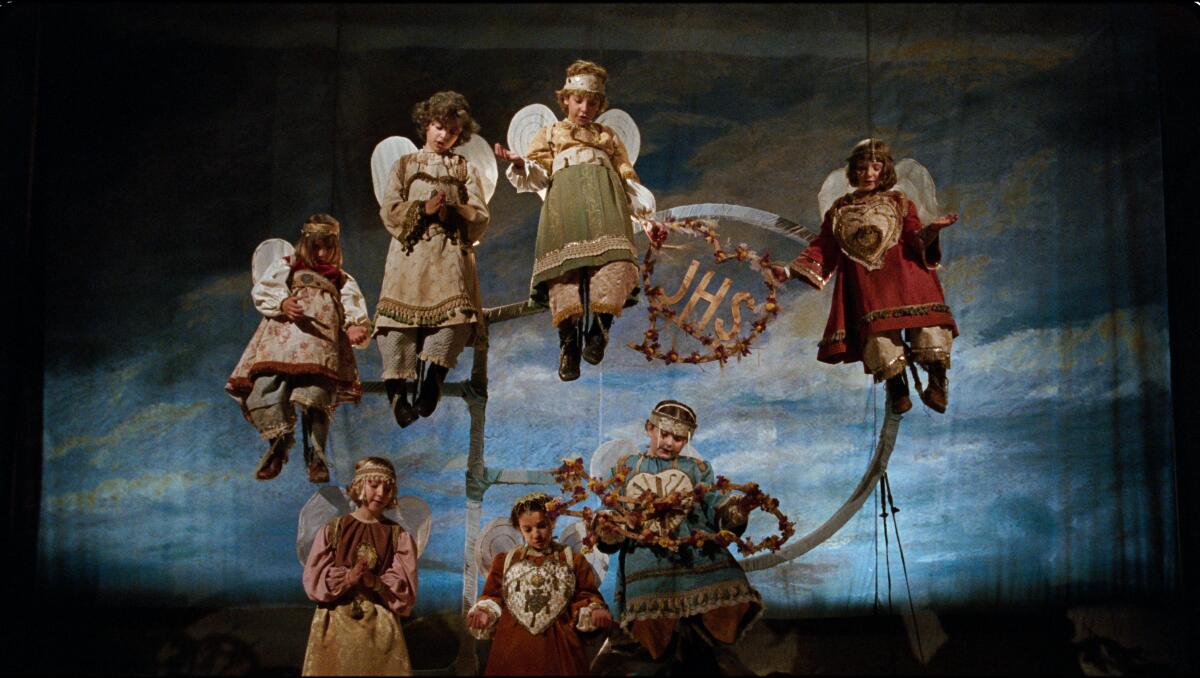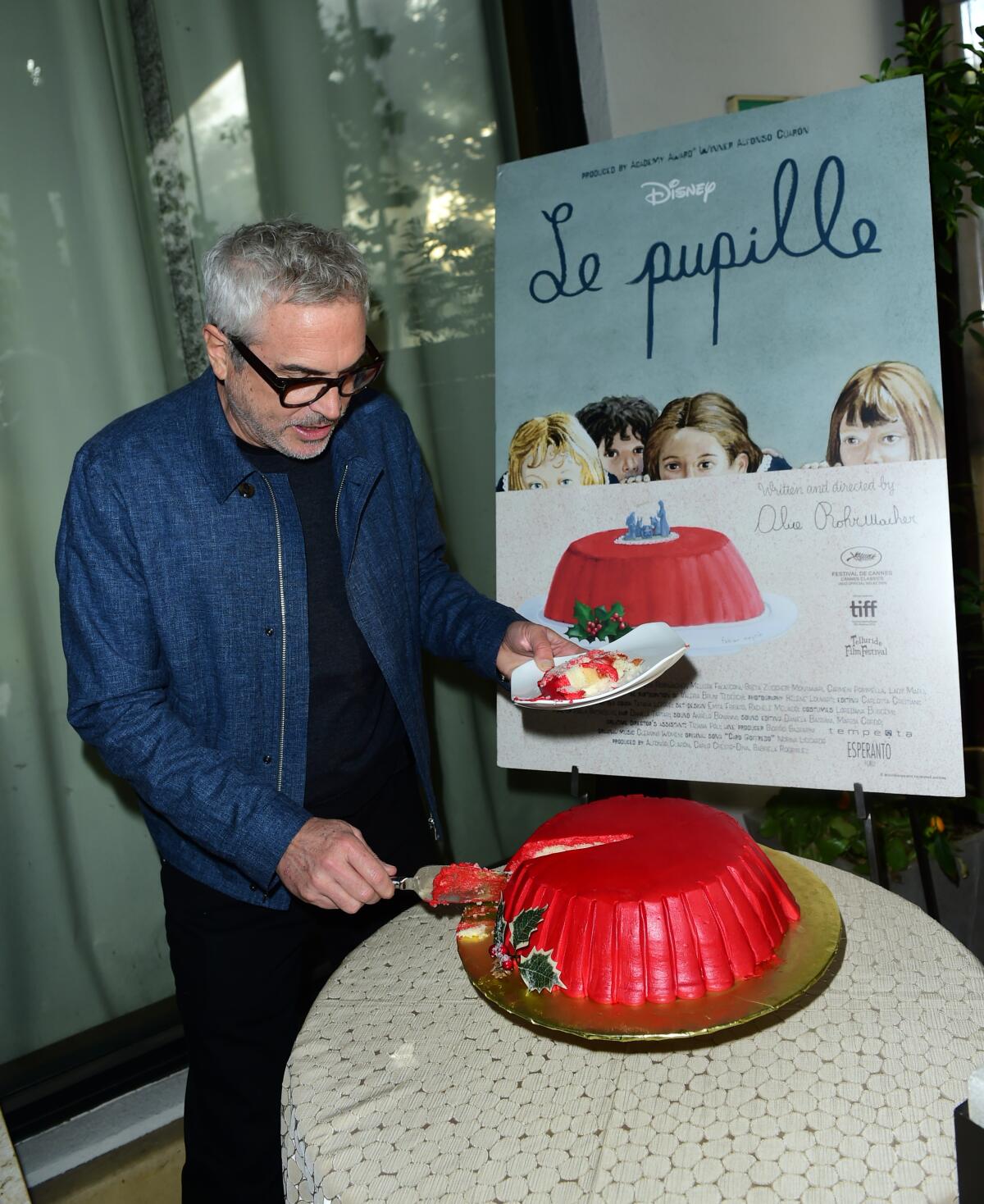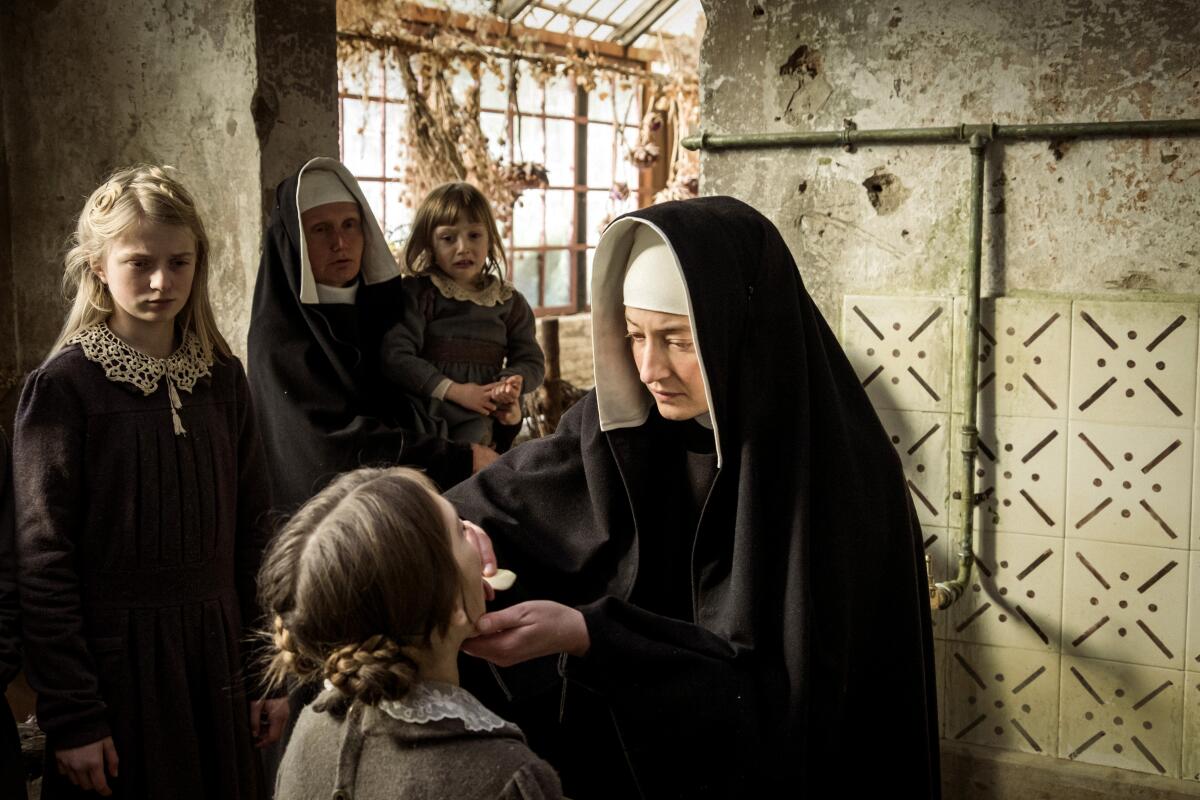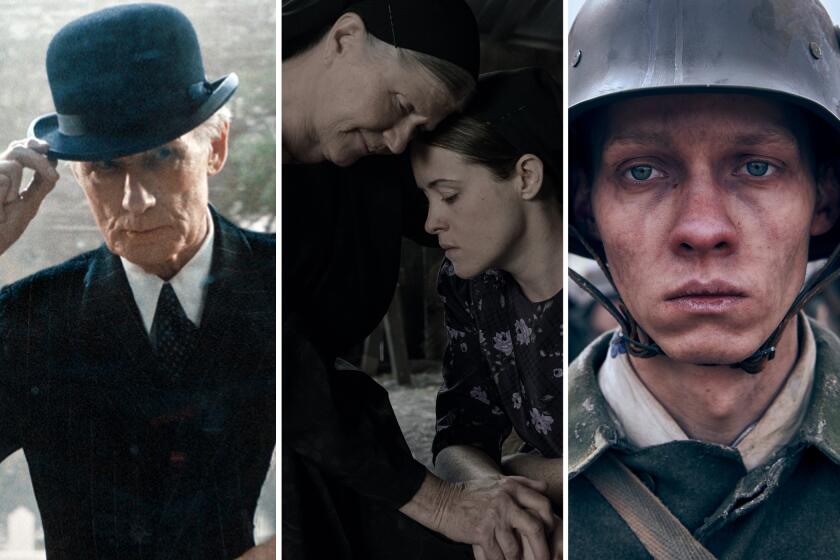How Alfonso Cuarón got behind a cheeky fable -- and now Oscar nominee

- Share via
“Bad girls are the best,” Italian auteur Alice Rohrwacher says of the essence of the anarchist Christmas story at the heart of her Oscar-nominated short film, “Le Pupille.”
Now streaming on Disney+, the delightfully cheeky fable takes place in a Catholic orphanage for girls during World War II where a young pupil, Serafina (Melissa Falasconi), defies the religious interpretation of benevolence. Her “wickedness” after being denied a piece of a luxurious zuppa inglese cake results in a testament to her inherent virtue.
“Le Pupille” came to be part of the Disney catalog after Mexican director Alfonso Cuarón, a producer on the project, had the idea to ask directors from around the world to create a short film set in their country and in their language celebrating an end-of-the-year holiday.
A fan of her body of work, including her whimsically rustic features “The Wonders” and “Happy as Lazzaro,” Cuarón reached out first to Rohrwacher. “Alice has a unique voice in contemporary filmmaking,” he says by phone. “All of her films exude an immense understanding of human complexities and great poetic beauty.”
The morning after Cuarón invited her to do a film, Rohrwacher contacted him with a fully thought-out short already in mind. She had long been fascinated by a letter that novelist Elsa Morante wrote to her friend and cultural critic Goffredo Fofi narrating a tale about boys in a religious boarding school and a lavish Christmas meal that tests their morality.

“I thought the letter could talk about today’s world, where everyone is trying to keep the cake for themselves,” Rohrwacher says. “In the story, the cake is shared with all those who need it the most.”
Although she changed the gender of the characters in the original account, Rohrwacher wished to preserve Morante’s words verbatim. To make them part of the film, she had musician Norina Liccardo turn the text of the letter into a song for the girls to perform.
As for the young cast, Rohrwacher set out to find girls who had not acted before. She worked with a group of about 20, looking for her Serafina. Each of them, she thought, could play a version of the character. But after a couple of weeks, she chose Falasconi to be the adorably determined main character; 16 of the other girls became her classmates.
For the key adult parts, the director enlisted Italian star Valeria Bruni Tedeschi to play Rosa, the wealthy lady who brings the cake as an offering to ask for a miracle, and her own sister and frequent collaborator Alba Rohrwacher as stern Mother Superior Fioralba.
The religious dogma that deems Serafina a naughty girl for wanting a bite of the dessert or singing along to a tune on the radio was an unavoidable aspect of the story, given that it happens at Christmastime. But the director sees it only as a backdrop to the film’s bigger questions about what it means to be “good” and mindful of the needs of others.

Still, one prominent scene where the girls portray the Nativity scene was directly inspired by the Mysteries of Campobasso, a type of tableau vivant, or living paintings tradition in which children, dressed as angels or other sacred characters, are hung on very high structures and carried around town.
“I wanted the film to have a moment of true sacredness in which we can still feel the emotion of this day through the immobility of the girls,” Rohrwacher says. “But I also wanted it to be part of the film’s playfulness: The girls can’t move, and only their “pupils” are free to move, dance, reach for the cake. Our eyes are always free, just keep them trained!”
Shot on Super 16-millimeter film for a timeless quality, the 37-minute short preserves the earthy aesthetic and fanciful narrative sensibilities of Rohrwacher’s previous efforts.
Although grateful for the reach that Disney’s involvement has given the film, Rohrwacher believes she would have realized “Le Pupille” the same way even without its sizable resources. “I probably would have had to do it with less financial support, maybe I wouldn’t have had 17 girls and just three of them, but it would have been the same film,” she says.
Our BuzzMeter film experts predict the Oscar winners in 10 categories. Check out the consensus picks, close races and interesting narratives - and vote in the polls for every category.
Disney came on board after reading the screenplay and granted Rohrwacher total creative freedom to craft her sweet cinematic confection. “They understood the film for what it is and that the subject matter lends itself so well for the Disney brand,” Cuarón notes.
More accustomed to the festival circuit than the exposure of the Academy Awards — “Le Pupille” first premiered at the Cannes Film Festival last year — Rohrwacher, who resides in the mostly rural central Italian region of Umbria, is enjoying the unfamiliar attention.
“Being nominated for an Oscar is one of those moments where you can say that reality surpasses imagination,” she says. “My life and my work are very far from Hollywood. I live on a farm in the countryside, and one of my main problems is to light a fire. But that’s exactly why this is something even more wonderful. Our differences are also our riches.”
More to Read
From the Oscars to the Emmys.
Get the Envelope newsletter for exclusive awards season coverage, behind-the-scenes stories from the Envelope podcast and columnist Glenn Whipp’s must-read analysis.
You may occasionally receive promotional content from the Los Angeles Times.










